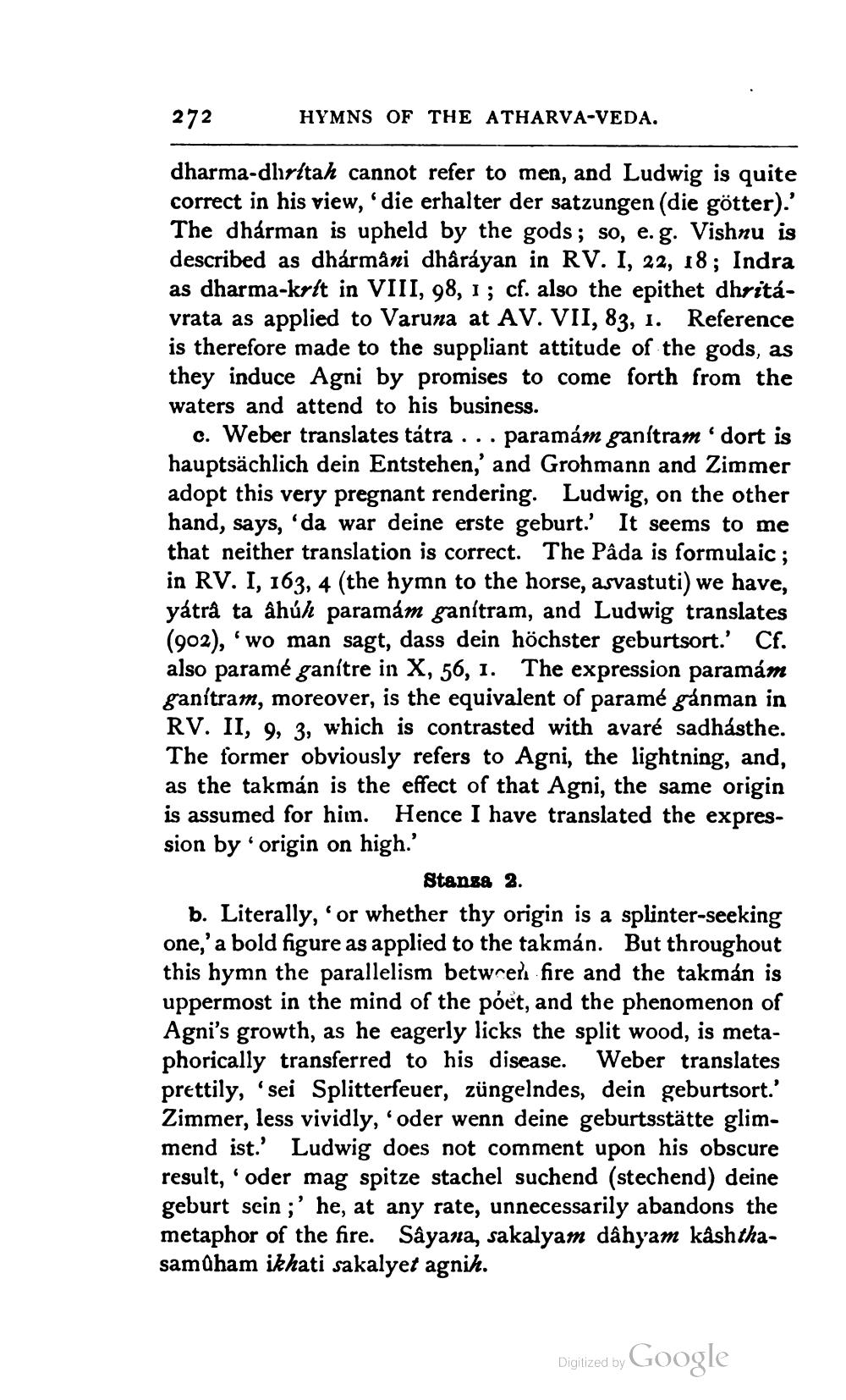________________
272
HYMNS OF THE ATHARVA-VEDA.
dharma-dhritah cannot refer to men, and Ludwig is quite correct in his view, 'die erhalter der satzungen (die götter).' The dhárman is upheld by the gods; so, e.g. Vishnu is described as dhármani dhâráyan in RV. I, 22, 18; Indra as dharma-krit in VIII, 98, 1; cf. also the epithet dhritávrata as applied to Varuna at AV. VII, 83, 1. Reference is therefore made to the suppliant attitude of the gods, as they induce Agni by promises to come forth from the waters and attend to his business.
c. Weber translates tátra ... paramám ganítram'dort is hauptsächlich dein Entstehen,' and Grohmann and Zimmer adopt this very pregnant rendering. Ludwig, on the other hand, says, 'da war deine erste geburt.' It seems to me that neither translation is correct. The Pâda is formulaic; in RV. I, 163, 4 (the hymn to the horse, asvastuti) we have, yátrå ta khúh paramám ganítram, and Ludwig translates (902), wo man sagt, dass dein höchster geburtsort.' Cf. also paramé ganítre in X, 56, 1. The expression paramám ganitram, moreover, is the equivalent of paramé gánman in RV. II, 9, 3, which is contrasted with avaré sadhasthe. The former obviously refers to Agni, the lightning, and, as the takmán is the effect of that Agni, the same origin is assumed for him. Hence I have translated the expression by origin on high.'
Stansa 2. b. Literally, or whether thy origin is a splinter-seeking one,' a bold figure as applied to the takmán. But throughout this hymn the parallelism betw.er fire and the takmán is uppermost in the mind of the poet, and the phenomenon of Agni's growth, as he eagerly licks the split wood, is metaphorically transferred to his disease. Weber translates prettily, 'sei Splitterfeuer, züngelndes, dein geburtsort.' Zimmer, less vividly, oder wenn deine geburtsstätte glimmend ist.' Ludwig does not comment upon his obscure result, oder mag spitze stachel suchend (stechend) deine geburt sein;' he, at any rate, unnecessarily abandons the metaphor of the fire. Sâyana, sakalyam dâhyam kashthasamdham ikhati sakalyet agnih.
Digized by Google




